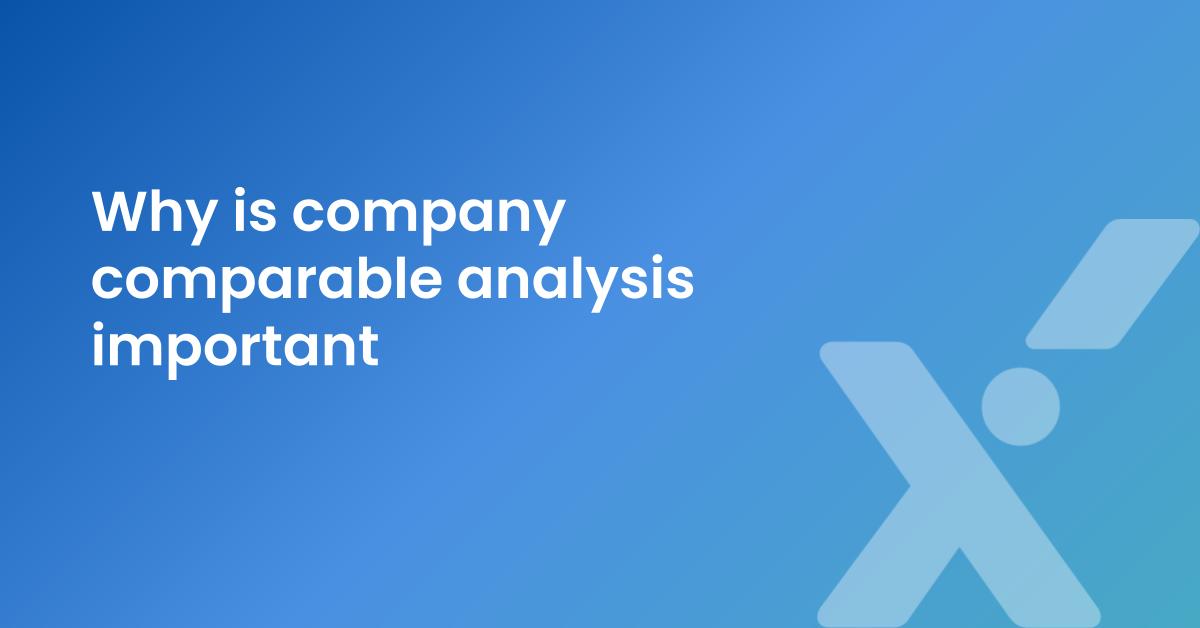You’ve got a business idea, and you want to make sure it’s adequately valued. You might be tempted to skip over this step, but that would be a mistake. A business valuation is an estimate of the business’s worth based on the value of similar companies. To do a valuation, you must determine what comparable companies are worth.
One way to do this is through company comparables analysis (also known as “comps”).
What is a company comparable?
Company comparables, or “comps”, are a variable used to compare a company’s performance with its peers. They provide investors and analysts with an insight into how well the company performs relative to its competitors.
Comps also allow investors to make informed decisions about investing in a particular company by comparing it against similar companies in the same industry. By looking at comps, investors can assess whether the company is undervalued or overvalued and make an educated decision about whether it’s worth investing in.
Why do a company comparable analysis?
Investors choose the comparable company analysis method over the others because it is easy to use and the information needed to figure out the value is easy to find. This is only true for companies that are traded on the stock market, where all the information is open to the public. This strategy also presumes that the market is doing a good job of pricing the securities of other companies. Companies give you a good range for the valuation, while other techniques, such as the discounted cash flow, depend on a long list of preconceptions.
All of these things make the composition the best and most-used one. People like research analysts, private equity investors, investment bankers, and other types of analysts use the comparable company analysis.
Investors can benefit in many ways from the Comparable Company Analysis, such as:
- Easy to talk to.
- Benchmarks for how much the property could be worth
- Easy to figure out
- A lot of data is out there.
But this process also has some bad things about it.
- It’s easy for things that aren’t fundamental to change.
- Data is not easy to get for private businesses
- Many things can make it hard for you to find the right information to compare for your business.
Why are comps important in business valuation?
To make a valuation, you need to figure out what comparable companies are worth.
When you’re valuing a business, it’s important to have an idea of what comparable companies are worth. For example, suppose you know that Company A is selling for $100 million and Company B is selling for $200 million. In that case, you can use this information when determining what your company might be worth.
A comparable company has similar characteristics as yours. For example, the same industry, size (in terms of revenue), growth rate, and profitability. In other words, they should be similar enough so that their performance can help predict how yours will perform in the future.
What information do you have about your business that can help you find similar companies?
Now that you know what comparable analysis is, it’s time to figure out what information you have about your business that can help you find similar companies. This includes financial data, industry data, competitor data and marketing data.
- Financial Data: You’ll need to pull together all of the financial information for each company in order to make an accurate comparison between them. Some examples include revenue growth rates over time; profit margins by product line or region; cost structures (e.g., number of employees per unit sold); capital expenditures (e.g., equipment purchases); operating expenses per employee; etcetera! It can be helpful to break down this type of information into categories like “operating costs” versus “selling/marketing costs” so that they’re easier to compare with one another across multiple businesses within an industry segmentation category (like retail).
When you’re ready to create your own company comparable analysis, ask yourself these questions:
When you’re ready to create your own company comparable analysis, ask yourself these questions:
- What information do I have about my business that can help me find similar companies?
- Do I have any internal financial data or other information about my company that might be useful in finding comparable firms?
- What other sources of information can I use to find similar companies: industry reports, trade association studies and statistics, etc.
There is no one right way to do company comparable analysis but tools can help you expedite the process.
Hopefully, this has given you a good sense of the company’s comparable analysis and why it’s essential. The key takeaway is that there are many different ways to do comps, so don’t worry if one method doesn’t work out for you–just move on to another!
Cyndx Valer allows you to determine the value of your company in minutes, not weeks. All you need to do is input some financial information and we compare it against relevant market data—including comparable company multiples, expected returns for private and public companies, and long-term growth projections to give you a relevant valuation of your company.

